As the culinary landscape evolves, air fryers have emerged as a game-changer in the kitchen appliance sector. Their ability to offer healthier fried food alternatives has not only captured the interest of health-conscious consumers but has also sparked a surge in demand. In this dynamic market, understanding the role of OEM services, particularly with retail giants like Costco, can be the key to unlocking new opportunities and enhancing brand presence. Let’s delve into the intricacies of this burgeoning industry and explore how Costco’s custom air fryer OEM service can be a game-changer for brands aiming to capitalize on the air fryer boom.
The Rise of Air Fryers in the US and European Markets
The air fryer has quietly become a staple in kitchen appliances across the United States and Europe, transforming the way we think about healthy cooking. Once a niche product, this innovative cooking device has surged in popularity, and it’s not hard to see why. Let’s delve into the factors that have contributed to the rise of air fryers in these key markets.
In the US, the health and wellness movement has been gaining momentum for years, and air fryers fit perfectly into this lifestyle shift. Consumers are increasingly seeking out cooking methods that allow them to enjoy their favorite fried foods with a fraction of the fat and calories. The air fryer’s ability to cook food using hot air, rather than oil, has made it a go-to choice for health-conscious home chefs.
European markets have also seen a significant uptick in air fryer sales, driven by a few key factors. Firstly, the region’s culinary traditions often include fried dishes, making the air fryer an attractive alternative that still delivers on taste while promoting healthier eating habits. Secondly, the European market has a reputation for embracing new technologies, and the air fryer has quickly become a symbol of modern, efficient cooking.
The convenience of air fryers cannot be overstated. They are compact, easy to use, and require minimal cleanup. These features have made them a must-have for busy households, where time is often at a premium. Additionally, the variety of air fryer models available means there’s something for everyone, from the novice cook to the seasoned chef.
One of the most significant drivers of air fryer popularity has been the marketing efforts of manufacturers. Companies have leveraged social media, influencer partnerships, and celebrity endorsements to showcase the benefits of air fryers. These campaigns have helped to normalize the product and make it a household name.
Moreover, the versatility of air fryers has expanded their appeal. Initially known for their ability to crisp up French fries and chicken, these appliances can now be used to cook a wide range of foods, from vegetables to meats to desserts. This versatility has allowed manufacturers to cater to different dietary preferences, including vegan and gluten-free options.
In the US, the market has been particularly influenced by the convenience store and grocery retail sectors. Retailers like Costco have played a pivotal role in the air fryer’s rise by offering high-quality, bulk options to their customers. The popularity of Costco’s custom air fryer OEM service has been a testament to the brand’s commitment to providing customers with innovative and value-driven products.
The European market, on the other hand, has seen a surge in eco-friendly air fryers. With growing concerns about sustainability, manufacturers have been quick to offer models that use less energy and are made from recyclable materials. This has resonated with consumers who are looking for cooking solutions that are both healthy and environmentally responsible.
Data from market research firms supports the trend of air fryer growth. Sales have been consistently on the rise, with projections showing no signs of slowing down. In fact, some experts predict that air fryers will become as common as microwaves in the next few years.
As the technology continues to evolve, we can expect to see even more innovative features in air fryers. From smart technology that allows for remote cooking to air fryers that can be integrated into kitchen appliances, the future looks promising for this dynamic product category.
In conclusion, the rise of air fryers in the US and European markets is a multifaceted phenomenon. It’s driven by health trends, convenience, technological advancements, and the strategic marketing efforts of manufacturers. As these markets continue to embrace healthier cooking methods, the air fryer is poised to remain a key player in the kitchen appliance landscape.
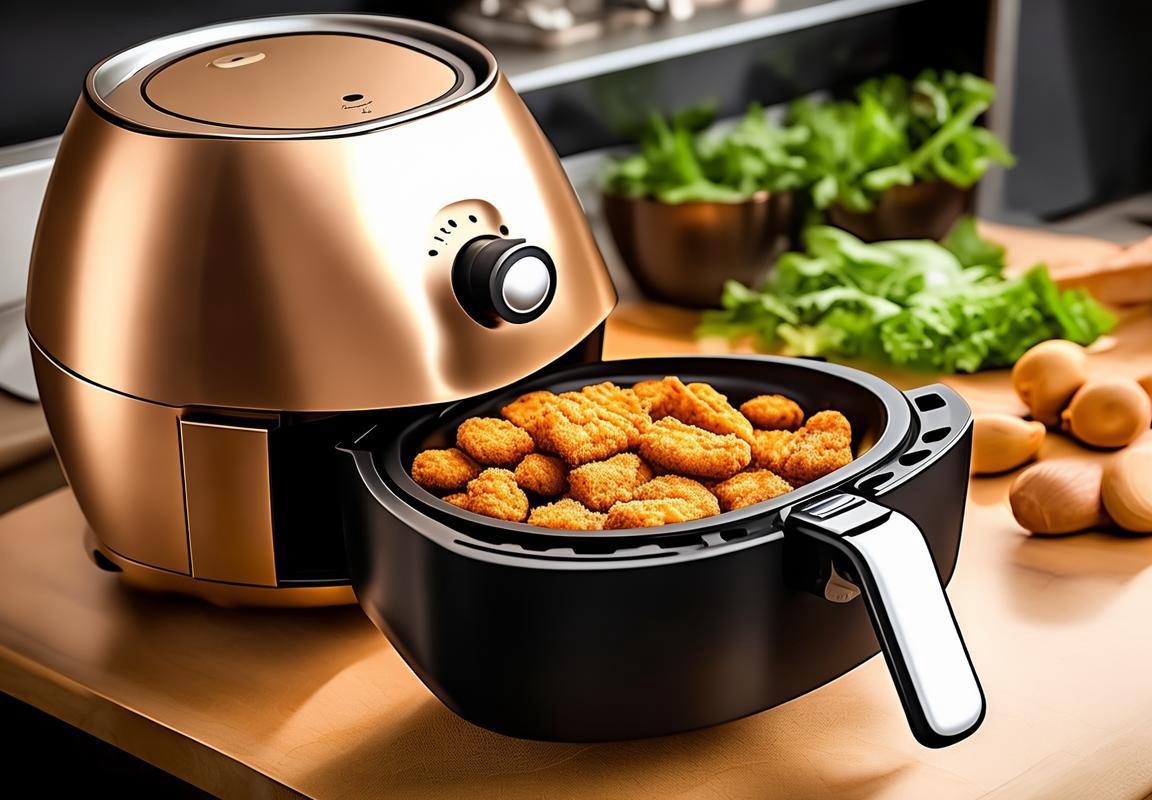
Costco’s Role in the Kitchen Appliance Sector
In the realm of kitchen appliances, Costco has emerged as a pivotal player, reshaping the landscape with its unique approach to the market. The warehouse retailer’s influence extends beyond bulk buying; it extends into the heart of consumer preferences and product innovation. Here’s how Costco has carved its niche in the kitchen appliance sector.
Costco’s buying power has always been a cornerstone of its success. By purchasing in large quantities, they can negotiate lower prices with manufacturers, which in turn allows them to offer competitive pricing to their members. This bulk buying strategy has given Costco a significant edge in the kitchen appliance sector, enabling them to stock a vast array of products from top brands.
One of the key aspects of Costco’s role in the kitchen appliance sector is its focus on quality. The retailer is known for its stringent quality standards, ensuring that only the best products make it onto their shelves. This commitment to quality has helped Costco establish a reputation for reliability, making it a preferred destination for consumers looking for high-end appliances.
The membership-based model of Costco has also played a crucial role in its success. Members pay an annual fee, which gives them access to exclusive deals and discounts. This model has created a loyal customer base that looks forward to the latest and greatest products at affordable prices. In the kitchen appliance sector, this translates to a steady stream of customers eager to explore new innovations.
Costco’s ability to adapt to market trends is another factor that sets it apart. The retailer has shown a remarkable ability to anticipate consumer needs and introduce new products accordingly. For instance, the rise of eco-friendly appliances has been met with a strong lineup of energy-efficient models, catering to the growing demand for sustainable living.
The in-store experience at Costco is also a key differentiator. The spacious layout and well-organized aisles make it easy for customers to navigate and find what they need. Additionally, the availability of knowledgeable staff who can provide detailed information about the products adds a personal touch to the shopping experience. This level of customer service is crucial in the kitchen appliance sector, where product choices can be complex and varied.
In recent years, Costco has expanded its online presence, offering members the convenience of shopping from home. This digital transformation has allowed Costco to reach a wider audience and cater to customers who prefer the ease of online shopping. The integration of online and offline shopping experiences has been seamless, further enhancing Costco’s position in the kitchen appliance sector.
Costco’s partnerships with manufacturers have been instrumental in driving innovation. By working closely with brands, Costco can provide valuable feedback and insights into consumer preferences. This collaborative approach has led to the development of unique products that cater to niche markets within the kitchen appliance sector.
The retailer’s focus on value-added services has also bolstered its position. Offering extended warranties, delivery options, and installation services has made the purchase process more straightforward for customers. In the kitchen appliance sector, where the cost of a single item can be substantial, these services add significant value.
Furthermore, Costco’s marketing strategies have been highly effective in promoting kitchen appliances. Through targeted campaigns and promotions, they have been able to highlight the benefits and features of various products, making them more appealing to consumers. This marketing muscle is particularly important in the competitive kitchen appliance market.
Lastly, Costco’s commitment to providing exceptional customer satisfaction is evident in its return and exchange policies. The retailer offers a generous 90-day return policy, which instills confidence in customers when making a significant purchase. This policy is especially valuable in the kitchen appliance sector, where products are often used for years.
In summary, Costco’s role in the kitchen appliance sector is multifaceted. From its buying power and focus on quality to its innovative marketing and customer-centric approach, Costco has become a dominant force. By continuously adapting to market trends and building strong relationships with both manufacturers and customers, Costco has solidified its place as a key player in the kitchen appliance industry.

Understanding OEM Services: What They Mean for Brands
OEM, or Original Equipment Manufacturer, services have become an integral part of the global supply chain, particularly in the kitchen appliance sector. This collaborative approach allows brands to focus on their core competencies while leveraging the expertise and resources of specialized manufacturers. Let’s delve into what OEM services entail and how they benefit brands.
Brands often seek OEM services to streamline their production processes and reduce costs. By outsourcing the manufacturing of certain components or entire products, companies can avoid the high capital expenditure required to set up and maintain their own manufacturing facilities. This not only cuts down on operational expenses but also frees up resources that can be allocated to research and development, marketing, and customer service.
The flexibility offered by OEM services is another significant advantage. Brands can quickly adapt to market demands by partnering with OEMs that can produce goods in varying quantities and turnaround times. This agility is crucial in a market as dynamic as kitchen appliances, where trends can shift rapidly. Whether it’s a surge in demand for smart kitchen gadgets or an increase in eco-friendly appliances, OEMs can help brands stay competitive by providing the necessary products promptly.
Quality control is a cornerstone of the OEM model. When brands work with reputable OEM partners, they can ensure that the products they offer meet the highest standards of quality. These manufacturers are often ISO-certified and adhere to stringent quality management systems. This means that brands can rest assured that the products they are selling are not only reliable but also align with their brand values and customer expectations.
One of the key benefits of OEM services is the ability to tap into a vast network of suppliers. OEM manufacturers have established relationships with various suppliers, which can lead to cost savings through bulk purchasing and better pricing on raw materials. This can be especially beneficial for brands that are looking to enter new markets or introduce new product lines without the burden of establishing new supply chains.
Innovation is fostered through collaboration in the OEM model. When brands work closely with OEMs, they can benefit from the latest technological advancements and design innovations. OEM manufacturers are often at the forefront of technological trends and can suggest improvements or entirely new product concepts that can give a brand a competitive edge.
The scalability of OEM services is a game-changer for brands. Whether a company is just starting out or planning to expand its product portfolio, OEMs can accommodate varying production volumes. This scalability means that brands can grow without the need to invest in additional manufacturing capacity, which can be both costly and time-consuming.
Another aspect of OEM services that brands value is the level of customization they offer. OEM manufacturers can produce items that are tailored to a brand’s specific needs, from the design of the product to the branding and packaging. This level of personalization allows brands to differentiate themselves in a crowded market and cater to niche markets with specialized products.
From a logistical standpoint, OEM services can simplify the supply chain. Brands can outsource the complexities of shipping, warehousing, and distribution to their OEM partners, who have the infrastructure and expertise to manage these processes efficiently. This can result in faster delivery times and improved customer satisfaction.
In terms of intellectual property, OEM services can be structured to protect a brand’s proprietary information. Confidentiality agreements are commonly in place to ensure that sensitive information is not shared with competitors. This security is crucial for brands that rely on their unique technologies or designs to maintain their market position.
Lastly, the long-term strategic partnerships formed through OEM services can provide brands with a competitive advantage. These relationships can lead to ongoing product development and improvements, as well as access to market insights and consumer feedback that can guide future product decisions.
In conclusion, OEM services play a pivotal role in the kitchen appliance sector by providing brands with cost-effective, flexible, and high-quality production solutions. From streamlining operations to fostering innovation and protecting intellectual property, the benefits of working with OEM manufacturers are clear. Brands that understand and leverage these services can position themselves for success in a rapidly evolving market.
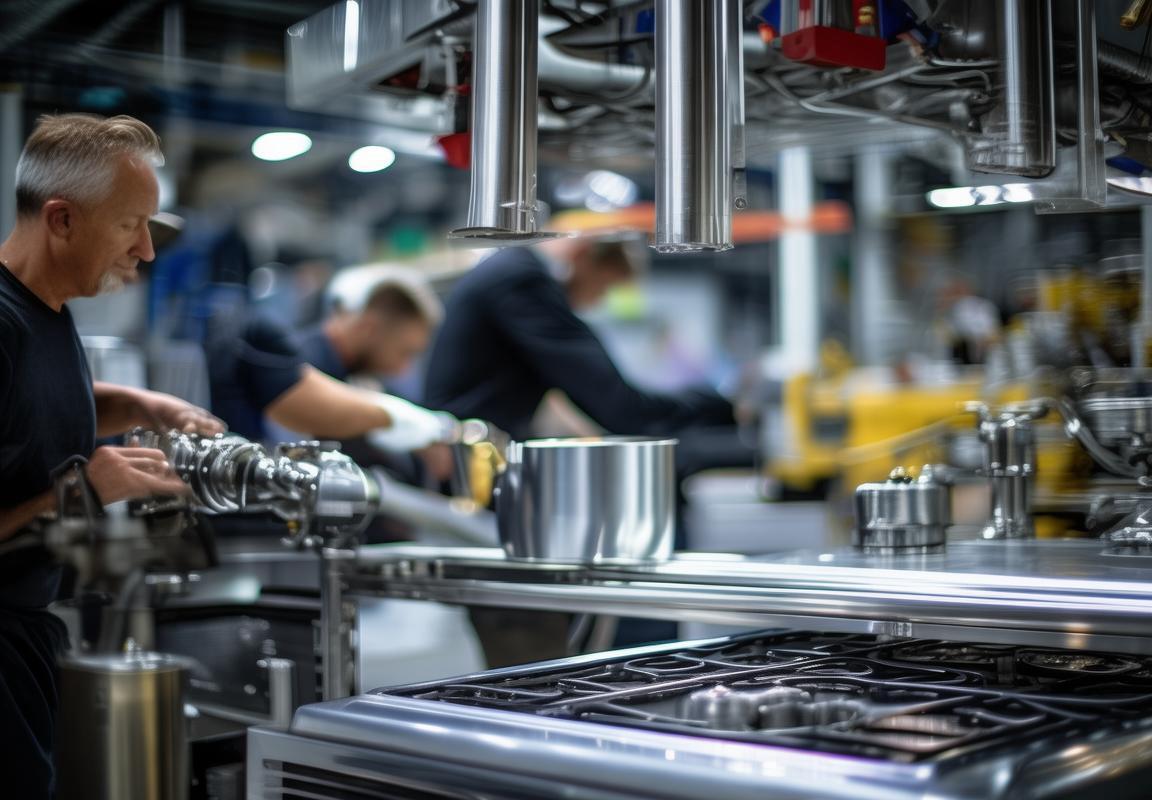
The Benefits of Costco Custom Air Fryer OEM Service
The custom air fryer OEM service offered by Costco presents a range of compelling benefits for brands looking to enter or enhance their presence in the kitchen appliance market. From tailored solutions to streamlined production, here’s a closer look at the advantages:
-
Customization and Brand IdentityTailoring air fryers to a brand’s specific design and functionality requirements allows for a unique product that stands out on the shelves. Costco’s OEM service ensures that each air fryer is not just a generic product but an extension of the brand’s identity, with features that resonate with the target audience.
-
Quality Control and ConsistencyWith Costco’s reputation for quality, brands can expect rigorous quality control standards to be applied throughout the manufacturing process. This consistency in quality can significantly boost the brand’s credibility and customer satisfaction, as consumers often associate Costco with excellence.
-
Reduced Time to MarketDeveloping a new product can be a time-consuming process. Costco’s custom OEM service streamlines the design and production phases, allowing brands to bring their air fryer to market faster. This agility is crucial in a rapidly evolving market where consumer preferences can shift quickly.
-
Cost EfficiencyOutsourcing the manufacturing process to Costco can be more cost-effective than setting up an in-house production line. Costco benefits from economies of scale and established supply chains, which can translate to lower production costs for the brands they partner with.
-
Expertise in Materials and TechnologyCostco’s experience in the kitchen appliance sector means they have a deep understanding of the materials and technologies that are most effective for air fryers. This expertise can lead to a product that is not only functional but also innovative, with features that may not have been considered by the brand alone.
-
Innovative Design and EngineeringCostco’s OEM service can incorporate cutting-edge design and engineering, ensuring that the air fryer is not just a trend follower but a trendsetter. This can lead to a more attractive product that appeals to tech-savvy consumers who are always looking for the latest in home appliances.
-
Market Trends and Consumer InsightsCostco has a wealth of data on market trends and consumer preferences. By leveraging this information, brands can create air fryers that are not only in line with current demands but also anticipate future ones. This forward-thinking approach can give brands a competitive edge.
-
Marketing and Distribution SupportBeyond manufacturing, Costco offers marketing and distribution support, which can be invaluable for new brands entering the market. This includes leveraging Costco’s extensive retail network and marketing expertise to ensure the air fryer reaches the right customers at the right time.
-
Scalability and FlexibilityAs a brand grows, the ability to scale production is essential. Costco’s custom OEM service allows for scalability, meaning brands can start with a small batch and grow to large-scale production without the need for significant changes in infrastructure.
-
Enhanced Customer ExperienceThe partnership with Costco for OEM services can lead to a more cohesive customer experience. From the design of the product to its packaging and placement in Costco stores, every aspect can be carefully considered to ensure it aligns with the brand’s values and the customer’s expectations.
-
Long-Term PartnershipsCostco’s commitment to building long-term relationships with their OEM partners can lead to a sustained collaboration that benefits both parties. This can result in continuous improvement and innovation, as both the brand and Costco work together to stay ahead of market trends.
-
Compliance and CertificationNavigating the complexities of certifications and compliance can be daunting for brands. Costco’s OEM service can handle these aspects, ensuring that the air fryer meets all necessary safety and regulatory standards, which can save brands time and resources.
In essence, Costco’s custom air fryer OEM service offers brands a comprehensive package that includes design, production, quality control, market insights, and support, all aimed at helping them create and deliver a successful product in the competitive kitchen appliance market.

Market Trends and Consumer Preferences in Air Fryers
The air fryer market has experienced a surge in popularity, driven by a combination of health-conscious consumers and the desire for convenience. Here’s a closer look at the latest market trends and consumer preferences shaping this dynamic sector.
Air fryers have transitioned from niche kitchen gadgets to must-have appliances. Once reserved for specialty markets, they’ve now become a staple in many households, thanks to their ability to offer healthier fried food alternatives. The trend towards healthier eating has propelled the demand for air fryers, as they use less oil than traditional fryers, making them a more appealing option for those looking to reduce their fat intake.
Consumers are not just drawn to the health benefits but also to the convenience that air fryers offer. The ability to cook a variety of foods, from crispy French fries to juicy chicken, in a single appliance is a major draw. The ease of use, with simple settings and minimal cleanup, has also made air fryers a favorite among busy families and individuals who prefer quick and easy meal preparation.
One notable trend is the increasing preference for multifunctional appliances. Air fryers have evolved to not only fry but also bake, roast, and even dehydrate, appealing to consumers who want a versatile tool for their kitchen. Brands that offer a range of features within the air fryer category are likely to capture a larger market share.
Smart technology integration is another key trend. With the rise of the Internet of Things (IoT), consumers are seeking appliances that can be controlled remotely through smartphones or tablets. Air fryers that can be connected to Wi-Fi and managed via apps are becoming more popular, allowing users to monitor cooking times and temperatures from anywhere.
Energy efficiency is also a significant factor in consumer preferences. As environmental concerns grow, so does the demand for appliances that consume less energy. Air fryers, which typically use less energy than traditional ovens and fryers, are seen as a more sustainable choice.
The design of air fryers has also become a point of focus. Consumers are looking for appliances that blend seamlessly into their kitchen decor, with sleeker, modern designs that complement their cooking space. Brands that offer a variety of design options, from classic to contemporary, are better positioned to cater to diverse consumer tastes.
In terms of material, stainless steel and non-stick surfaces remain popular due to their durability and ease of cleaning. However, there’s a growing trend towards eco-friendly materials, with some brands exploring biodegradable or recycled components to reduce their environmental footprint.
When it comes to branding and marketing, there’s a shift towards storytelling and authenticity. Consumers are more likely to purchase from brands that share their values and have a transparent approach to manufacturing and sourcing. This includes ethical labor practices, sustainable production methods, and a clear commitment to health and wellness.
Lastly, the rise of social media has influenced consumer preferences. Influencers and chefs are often seen using air fryers in their cooking videos, which can significantly impact consumer buying decisions. Brands that leverage social media platforms effectively to showcase their products and engage with their audience are likely to see increased sales.
The air fryer market is a testament to the power of innovation and consumer-driven demand. As the market continues to evolve, brands that stay attuned to these trends and preferences will be well-positioned to lead the way in this dynamic sector.
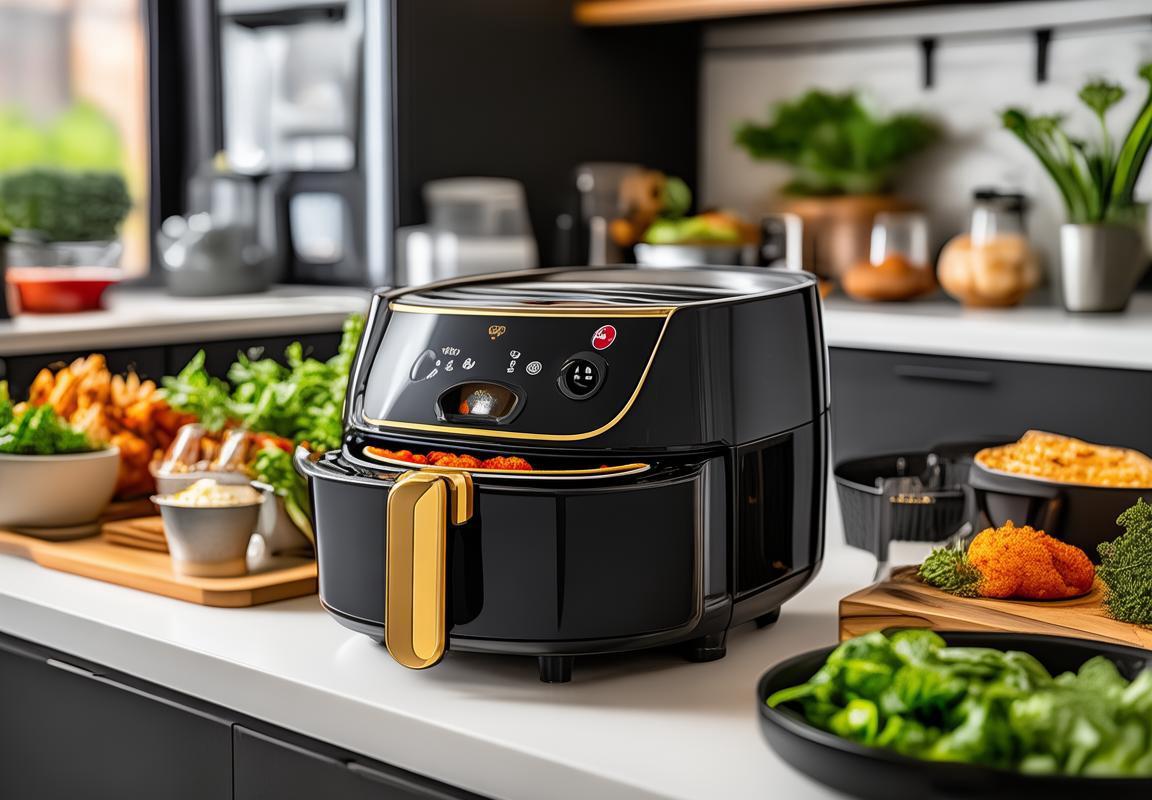
Data-Driven Insights into Air Fryer Sales and Growth
The air fryer market has seen a surge in sales and growth, with data revealing fascinating insights into consumer behavior and market dynamics. Here’s a closer look at the data-driven trends shaping the air fryer industry.
Consumer Adoption Rates SoaringSales figures indicate a significant increase in air fryer adoption rates over the past few years. According to a report by Grand View Research, the global air fryer market size was valued at USD 1.2 billion in 2018 and is expected to reach USD 3.5 billion by 2025, growing at a CAGR of 15.2%. This growth is attributed to the rising health consciousness among consumers, who are seeking healthier alternatives to traditional frying methods.
Health and Wellness as Key DriversThe data shows that health and wellness are at the forefront of consumer preferences when it comes to air fryers. A study by the NPD Group found that 60% of consumers are more likely to purchase an air fryer if it is marketed as a healthier cooking option. This shift towards healthier lifestyles has propelled the demand for air fryers, as they offer a way to enjoy fried foods with less oil and fewer calories.
Innovation in Features and TechnologyAir fryer manufacturers are responding to consumer demand by introducing innovative features and technologies. Smart air fryers, for instance, are becoming increasingly popular, with features like automatic shut-off, temperature control, and pre-programmed settings. Data from the Consumer Technology Association reveals that smart kitchen appliances, including air fryers, are expected to grow by 15% annually, driven by the convenience and efficiency they offer.
Market Segmentation and DiversificationThe air fryer market is not limited to a single demographic or region. Data from Euromonitor International indicates that while the United States and Europe remain the largest markets for air fryers, there is a growing interest in emerging markets like China and India. This diversification in market segments is creating new opportunities for brands to tailor their products to specific consumer needs and preferences.
E-commerce as a Key Distribution ChannelThe rise of e-commerce has significantly impacted the air fryer market. Online sales have been a major driver of growth, with data from Statista showing that online sales of kitchen appliances, including air fryers, have increased by 20% in the past year. This shift towards online shopping is attributed to the convenience and wider variety of products available online.
Seasonal Trends and PromotionsAir fryer sales often follow seasonal trends, with spikes in sales during holiday seasons and major sales events. Data from the National Retail Federation shows that kitchen appliances, including air fryers, are among the top gifts during the holiday season. Retailers and manufacturers leverage these trends by offering promotions and discounts, which in turn drive sales.
Brand Loyalty and Market SaturationAs the market grows, brand loyalty becomes increasingly important. Consumers are more likely to purchase air fryers from brands they trust, and data from Nielsen shows that brand loyalty can lead to repeat purchases and higher lifetime value. However, the market is also becoming more saturated, with numerous brands competing for market share. This competition has led to a focus on differentiation through unique features, quality, and customer service.
Globalization and Cross-Regional InfluenceThe air fryer market is not confined to local trends; global influences are playing a significant role. For example, the popularity of Korean cooking shows has introduced new air fryer recipes and cooking techniques to a broader audience. This cross-regional influence is shaping consumer preferences and driving the growth of the air fryer market worldwide.
In conclusion, the air fryer market is experiencing a surge in sales and growth, driven by health-conscious consumers, technological innovation, and the rise of e-commerce. Data-driven insights into consumer behavior and market dynamics are crucial for brands looking to capitalize on this trend and maintain a competitive edge.

Case Studies: Successful OEM Partnerships with Costco
In the competitive landscape of kitchen appliances, original equipment manufacturing (OEM) partnerships have become a cornerstone for brands looking to innovate and scale. Costco, with its vast consumer base and reputation for quality, has forged several successful OEM collaborations that have not only bolstered the retailer’s product offerings but also propelled brands to new heights. Let’s delve into a few case studies that highlight the benefits of these partnerships.
1. Brand A’s Smart Air Fryer SeriesBrand A, a relatively new entrant in the air fryer market, partnered with Costco to launch its Smart Air Fryer Series. The collaboration allowed Brand A to tap into Costco’s extensive customer network, offering its innovative air fryers to a broader audience. The series featured advanced technology such as smart connectivity, which allowed users to control their fryers remotely via an app. Costco’s marketing muscle helped Brand A’s Smart Air Fryer Series gain immediate attention, leading to a significant increase in sales and brand recognition.
2. Eco-Friendly Brand B’s Air FryersBrand B, known for its eco-friendly and sustainable products, sought to expand its market reach by partnering with Costco. The OEM agreement with Costco allowed Brand B to introduce its line of air fryers, which were designed with energy efficiency and environmental impact in mind. The partnership was a hit, as Costco’s customers, who are often environmentally conscious, were drawn to the eco-friendly features. The success of this collaboration led to increased sales for Brand B and a stronger presence in the kitchen appliance sector.
3. The Global Brand C’s Costco ExclusiveGlobal brand C, a leader in kitchen appliances, decided to create a Costco exclusive air fryer model. The decision was strategic, as Costco’s members are known for their loyalty and willingness to invest in premium products. The exclusive model featured high-end specifications and was priced competitively within the Costco membership framework. The result was a win-win situation, with Costco enjoying a unique selling proposition and Brand C experiencing a surge in sales due to the association with the renowned retailer.
4. Local Brand D’s Breakthrough with CostcoLocal brand D, which had been operating in niche markets, aimed to break into the mainstream kitchen appliance scene. By partnering with Costco for an OEM deal, Brand D was able to introduce its air fryers to a national audience. The collaboration included tailored marketing strategies that highlighted the brand’s unique features and benefits. The outcome was a significant boost in brand visibility and sales, allowing Brand D to expand its market presence and consider international growth.
5. The Collaborative Approach of Brand EBrand E, recognized for its customizability, chose Costco as a partner to launch a line of air fryers that could be personalized with various coatings and designs. This approach appealed to Costco’s diverse customer base, as it allowed members to choose air fryers that matched their kitchen decor. The OEM service offered by Costco facilitated the production of these customized air fryers, ensuring timely delivery and high-quality standards. The success of this partnership underscored the importance of customization in the kitchen appliance market and the role of OEM services in enabling such offerings.
6. Cross-Promotion Success with Brand FBrand F, a company specializing in healthy cooking solutions, partnered with Costco to cross-promote its air fryers alongside organic and non-GMO cooking ingredients. This strategic move not only helped Brand F to leverage Costco’s credibility in health and wellness but also allowed Costco to offer a comprehensive solution to its customers. The combined marketing efforts resulted in a strong sales performance for both parties, with customers appreciating the convenience and health benefits of the combined offering.
7. The Impact of Costco’s Brand Power on Brand GFor Brand G, a small, family-owned appliance manufacturer, the partnership with Costco was a game-changer. The association with the retail giant significantly boosted the brand’s image and sales. Costco’s reputation for quality and customer service helped to validate Brand G’s products, leading to increased trust among consumers. The partnership also provided Brand G with valuable market insights and the opportunity to scale its operations efficiently.
These case studies demonstrate the multifaceted benefits of OEM partnerships with Costco. From expanding market reach to enhancing brand reputation and driving sales, these collaborations have proven to be instrumental in the success stories of various kitchen appliance brands.
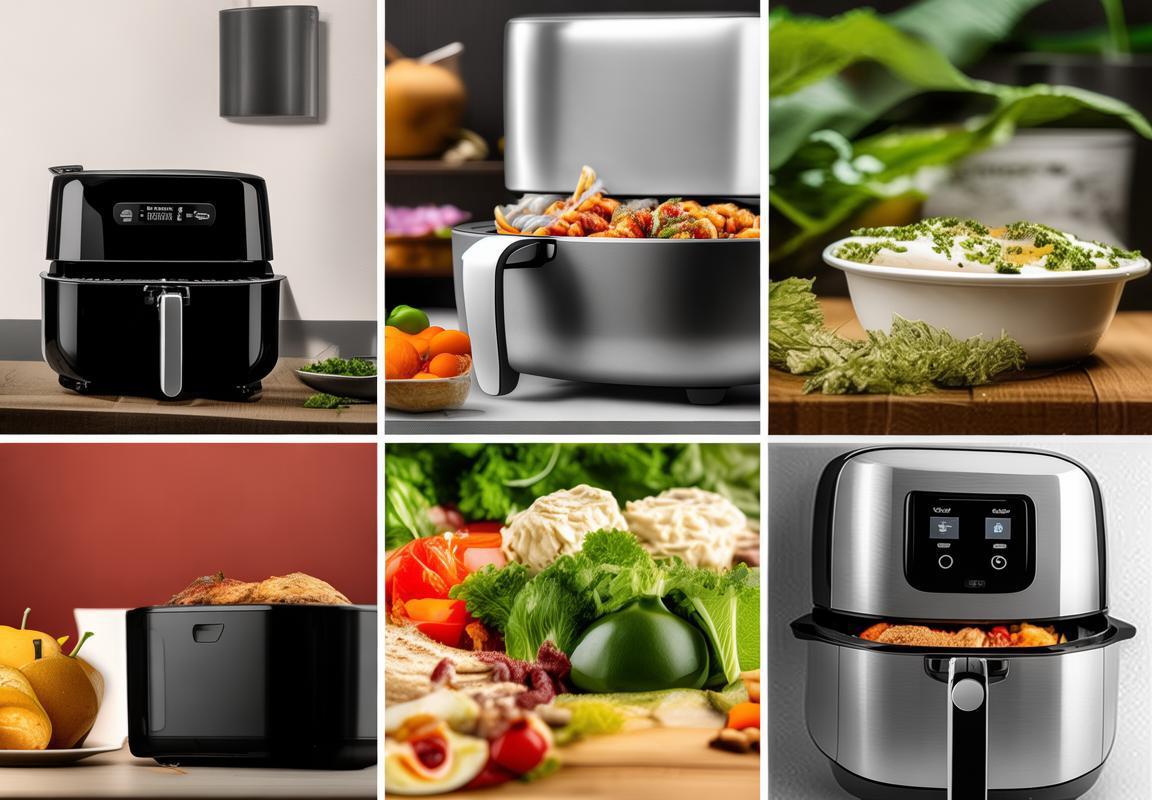
The Future Outlook for Air Fryer OEMs in the Western Markets
The air fryer market has seen a remarkable surge in popularity, especially in Western markets like the United States and Europe. This shift is not just a fleeting trend; it’s a testament to the evolving consumer preferences and technological advancements that are reshaping the kitchen appliance sector. From health-conscious consumers seeking healthier cooking alternatives to eco-friendly households looking for energy-efficient solutions, the air fryer has become a staple in many kitchens. Let’s delve into the data-driven insights that highlight the sales and growth trends in this dynamic industry.
Sales data indicates a consistent climb in air fryer sales over the past few years. For instance, in the U.S., the market has seen a year-over-year increase in sales, with consumers spending more on these appliances. The same trend is observed in Europe, where the air fryer has become a sought-after item in the appliance aisles. This growth can be attributed to several factors, including the health benefits associated with air frying, which is perceived as a healthier alternative to traditional deep-frying methods.
Consumer preferences have also played a significant role in the rise of air fryers. Health and wellness are at the forefront of many consumers’ minds, and air fryers offer a solution that allows for crispy, delicious food with less oil. The convenience factor is another key driver; modern air fryers are designed with user-friendly features and compact sizes, making them perfect for small kitchens and busy lifestyles. Additionally, the versatility of air fryers, which can be used to cook a wide range of foods, from vegetables to meats to desserts, has broadened their appeal.
Market research indicates that the demand for air fryers is not just driven by individual consumers but also by the foodservice industry. Fast-casual restaurants and even some full-service restaurants have begun incorporating air fryers into their kitchen equipment, offering customers a healthier option without compromising on taste. This shift in the foodservice sector is expected to further propel the growth of the air fryer market.
In terms of regional trends, the U.S. and Europe are leading the charge in air fryer adoption. The U.S., in particular, has seen a surge in sales, with the appliance becoming a staple in many homes. The European market, while not as mature as the U.S., is growing at a steady pace, with countries like the UK, Germany, and France leading the way. The varying adoption rates can be attributed to cultural differences in cooking habits and dietary preferences.
The rise of e-commerce has also played a crucial role in the air fryer’s growth. Online retailers have made it easier for consumers to purchase air fryers, offering a wider variety of brands and models. This accessibility has helped to drive sales and has also allowed manufacturers to gather valuable data on consumer preferences and usage patterns.
When it comes to the future outlook for air fryer OEMs (Original Equipment Manufacturers) in the Western markets, several key factors are at play. The first is the continuous innovation in air fryer technology. As manufacturers strive to improve efficiency, reduce energy consumption, and enhance the cooking experience, the market is expected to see a steady stream of new features and designs. This innovation will likely attract new consumers and retain existing ones.
Another factor is the potential for market expansion. While the U.S. and Europe are currently the leading markets, there is room for growth in other regions, such as Asia and South America. As these markets develop and become more health-conscious, they may see similar growth in air fryer sales.
Furthermore, the health and wellness trend is likely to persist, which will continue to drive demand for air fryers. Consumers are increasingly looking for ways to enjoy their favorite foods while maintaining a healthy lifestyle, and air fryers offer a solution that meets this need.
The rise of private label brands is also a notable trend. Retailers like Costco, which offer custom air fryer OEM services, are increasingly popular. These private label brands often provide a cost-effective alternative to well-known brands while still delivering quality and performance. This trend indicates that OEM partnerships are becoming more crucial for manufacturers looking to expand their market share.
Lastly, the environmental impact of cooking methods is gaining traction. As consumers become more aware of the environmental consequences of traditional cooking methods, they may be more inclined to purchase appliances that are more sustainable. Air fryers, with their energy-efficient operation, could benefit from this growing concern for the environment.
In conclusion, the future outlook for air fryer OEMs in the Western markets is promising. With a combination of technological innovation, market expansion, and consumer trends favoring health and sustainability, the air fryer market is poised for continued growth. OEMs that can adapt to these changes and offer high-quality, innovative products will be well-positioned to capitalize on this dynamic market.
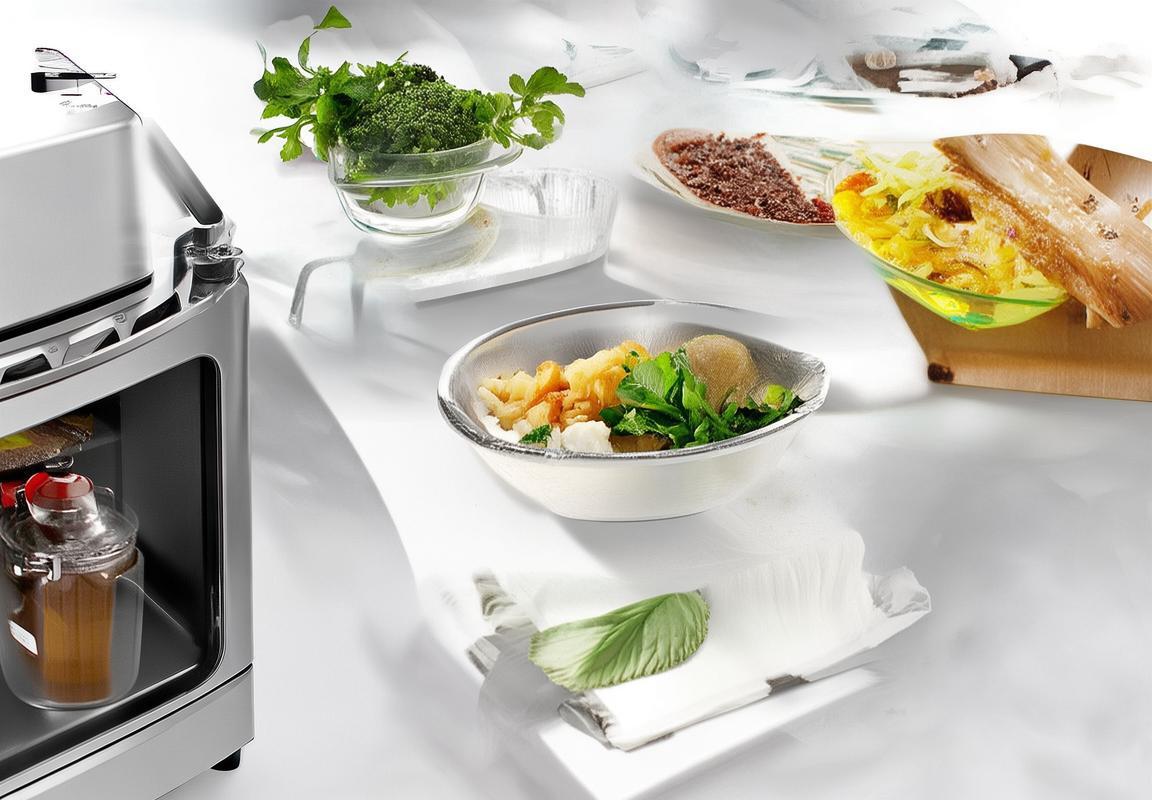
How Costco Custom Air Fryer OEM Service Can Boost Your Brand
In the competitive world of kitchen appliances, the ability to offer unique and high-quality products can set a brand apart. Costco’s custom air fryer OEM service has emerged as a game-changer for many manufacturers looking to enhance their market presence. Here’s how this service can elevate your brand:
The Customization EdgeBrands partnering with Costco for their air fryer OEM services gain the advantage of tailoring their products to meet specific market demands. By offering a range of sizes, features, and design options, manufacturers can cater to diverse consumer preferences and create a product that stands out in a crowded market.
Quality AssuranceCostco’s reputation for quality is well-earned, and when brands opt for their OEM service, they are essentially associating their name with this high standard. This can significantly boost brand credibility, as consumers often equate Costco’s brand with reliability and excellence.
Streamlined Production ProcessWorking with Costco’s OEM service means manufacturers can benefit from a streamlined production process. Costco’s expertise in supply chain management ensures efficient production, reducing lead times and minimizing the risk of delays, which in turn, can enhance a brand’s reputation for timely delivery.
Market AccessCostco’s vast network of stores and online presence provides brands with immediate access to a large and loyal customer base. This direct route to market can significantly shorten the time it takes for a new product to gain traction, thereby accelerating brand growth.
Cost-Effective SolutionsCostco’s buying power allows them to negotiate better deals on materials and components. This cost-effectiveness can be passed on to the brands, enabling them to offer competitive pricing without compromising on quality. This, in turn, can make a brand’s products more attractive to price-conscious consumers.
Innovation at ScaleCostco’s commitment to innovation means that brands can tap into the latest technological advancements in air fryer technology. By integrating these innovations into their products, brands can offer cutting-edge solutions that not only meet but exceed consumer expectations.
Enhanced Brand ImageThe association with a retail giant like Costco can elevate a brand’s image. Consumers may perceive the brand as more established and reputable, which can be particularly beneficial for new or smaller brands looking to establish their presence in the market.
Customized Marketing and PromotionsThrough Costco’s partnership, brands can leverage the retailer’s marketing and promotional strategies. This includes access to Costco’s extensive marketing materials, co-branded marketing campaigns, and the opportunity to showcase their products to a highly engaged audience.
Feedback Loop for Continuous ImprovementCostco’s direct interaction with customers provides valuable feedback that can be used to continuously improve products. Brands that use Costco’s OEM service can benefit from this real-time data, ensuring that their products remain relevant and competitive.
Diverse Product RangeCostco’s customers appreciate variety, and by offering a range of air fryers, brands can cater to different segments of the market. This diversity can help a brand capture a wider audience and increase market share.
Long-Term Strategic RelationshipsThe OEM service with Costco can lead to long-term strategic relationships. This stability can provide brands with a reliable partner for future product development, ensuring that they remain at the forefront of market trends.
In conclusion, Costco’s custom air fryer OEM service offers a multitude of benefits that can significantly boost a brand’s market position. From quality assurance to market access and cost-effective solutions, brands that partner with Costco can position themselves for success in the dynamic and ever-evolving kitchen appliance sector.
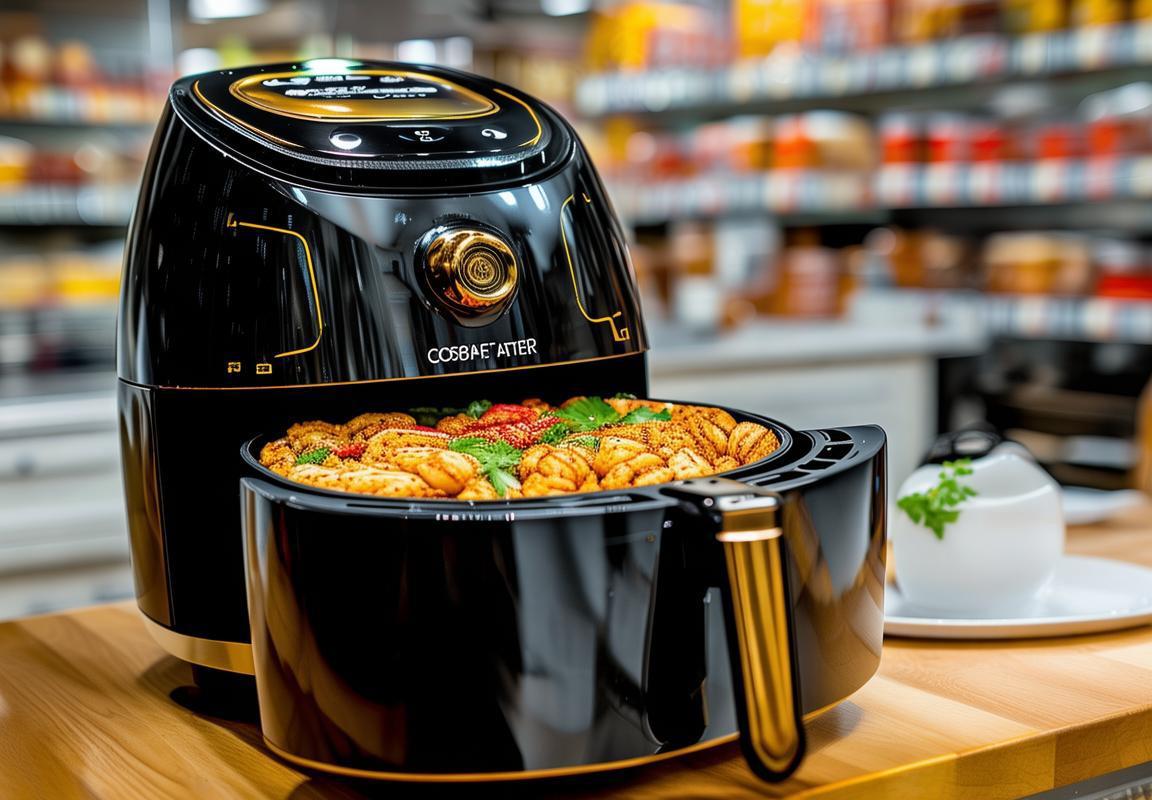
Conclusion: Embracing the Air Fryer Boom with Costco’s OEM Expertise
In a market where innovation and consumer demand are in a constant state of flux, embracing the air fryer boom with Costco’s OEM expertise can be a game-changer for brands. The rise of air fryers has not only reshaped the kitchen appliance sector but has also opened new avenues for manufacturers to create customized solutions that resonate with today’s health-conscious consumers. Here’s how Costco’s custom air fryer OEM service can elevate your brand’s presence in the competitive landscape.
The surge in popularity of air fryers is driven by a combination of factors, including health trends, convenience, and technological advancements. Consumers are increasingly seeking cooking methods that offer healthier alternatives to traditional frying, and air fryers have stepped in as a viable option. Costco’s custom OEM service allows brands to tap into this demand by tailoring their air fryers to meet specific consumer preferences and market needs.
One key benefit of Costco’s custom air fryer OEM service is the ability to offer unique features that differentiate a brand from its competitors. Whether it’s incorporating smart technology, enhancing the design, or improving functionality, these customizations can make a significant impact on consumer purchasing decisions. For example, a brand might opt for a larger capacity air fryer with preset cooking modes, catering to families or those who entertain often.
Another advantage is the opportunity to align with Costco’s brand reputation. Costco is known for its high-quality, name-brand products that offer exceptional value. By partnering with Costco for OEM services, brands can leverage this reputation to enhance their own credibility in the market. Consumers often perceive products associated with Costco as reliable and of high quality, which can be a powerful endorsement for any brand.
The data-driven insights provided by Costco’s OEM service can also be a game-changer. By analyzing sales trends and consumer feedback, brands can gain valuable insights into what features and functionalities are most sought after. This information can be used to refine existing products or to develop entirely new lines that cater to emerging market demands. For instance, if data shows a growing interest in air fryers with eco-friendly materials, a brand can capitalize on this trend by offering a sustainable option.
Costco’s custom air fryer OEM service also offers the flexibility to adapt to changing market conditions. The ability to quickly respond to new trends, such as the rise of plant-based diets, can be a significant differentiator. By providing a range of air fryers that can handle different types of ingredients, brands can appeal to a broader audience and stay relevant in a rapidly evolving market.
Moreover, the collaborative nature of Costco’s OEM partnerships allows brands to benefit from the retailer’s extensive market reach. Costco’s vast customer base means that products associated with the brand have the potential to reach a wide audience. This exposure can be particularly beneficial for new or lesser-known brands looking to make a name for themselves in the competitive kitchen appliance sector.
In terms of brand building, Costco’s custom air fryer OEM service can help create a narrative around innovation and commitment to quality. By offering a product that is not only cutting-edge but also aligns with Costco’s values of providing the best possible experience for its members, brands can strengthen their position in the market. This association can lead to increased brand loyalty and a competitive edge over competitors.
The cost-effectiveness of Costco’s OEM service is another compelling reason for brands to consider this partnership. By working with Costco, manufacturers can benefit from economies of scale, reducing production costs and potentially passing these savings on to consumers. This can result in more affordable pricing, making air fryers accessible to a wider demographic.
In conclusion, the air fryer boom presents a golden opportunity for brands to innovate and capture market share. Costco’s custom air fryer OEM service offers a multitude of benefits, from enhancing product features to leveraging the retailer’s reputation and market insights. By embracing this partnership, brands can not only ride the wave of the air fryer trend but also build a stronger, more resilient brand presence in the Western markets.